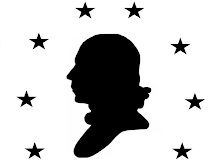The full text of Judge Bolton's order in US v. Arizona is here. The first four pages of the order quickly summarize which provisions of the Arizona law can and cannot lawfully be enforced until a final disposition of the case. The final paragraph of the order concludes:
"A preliminary injunction would allow the federal government to continue to pursue federal priorities, which is inherently in the public interest, until a final judgment is reached in this case.
The Court by no means disregards Arizona’s interests in controlling illegal immigration and addressing the concurrent problems with crime including the trafficking of humans, drugs, guns, and money. Even though Arizona’s interests may be consistent with those of the federal government, it is not in the public interest for Arizona to enforce preempted laws. The Court therefore finds that preserving the status quo through a preliminary injunction is less harmful than allowing state laws that are likely preempted by federal law to be enforced."
Arizona is currently requesting an expedited hearing for its appeal.
Arizona is currently requesting an expedited hearing for its appeal.









